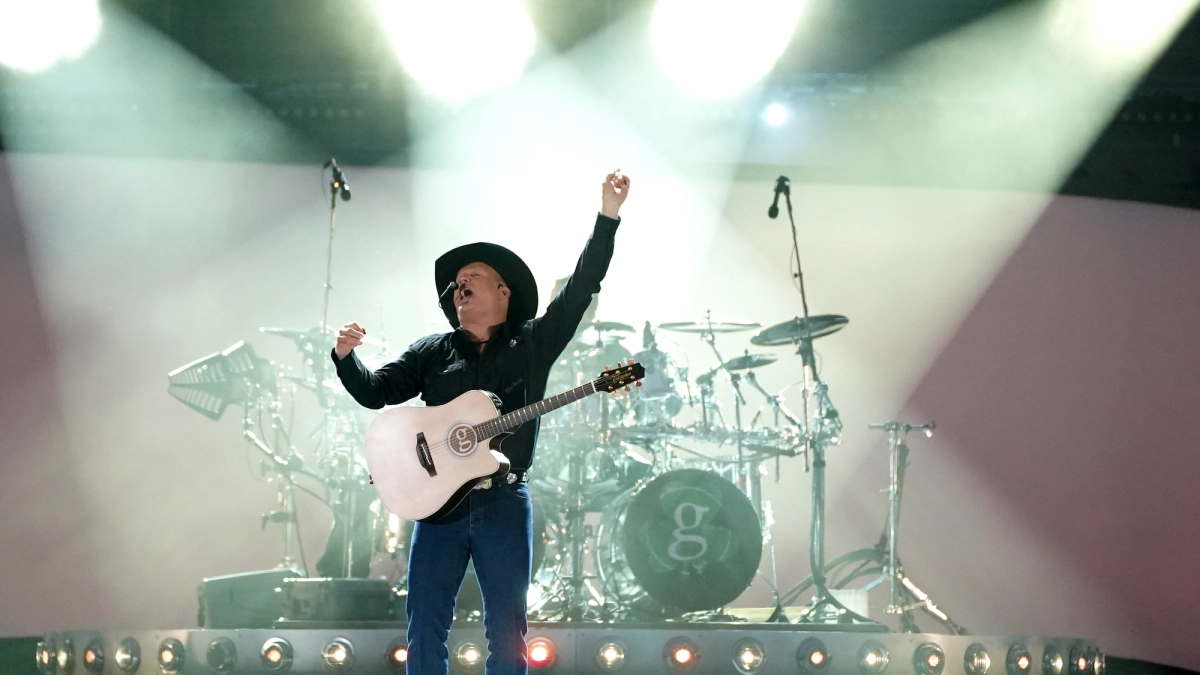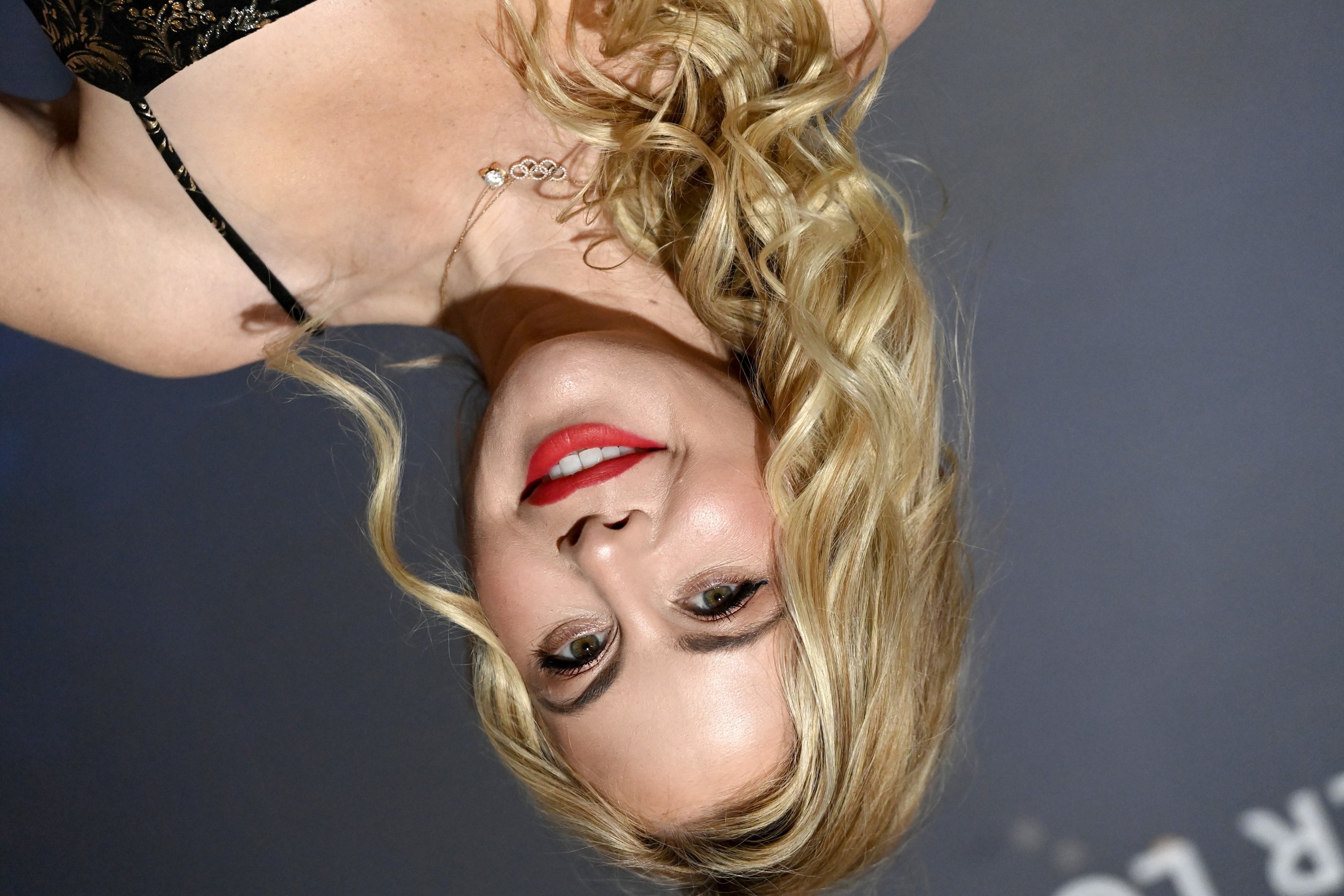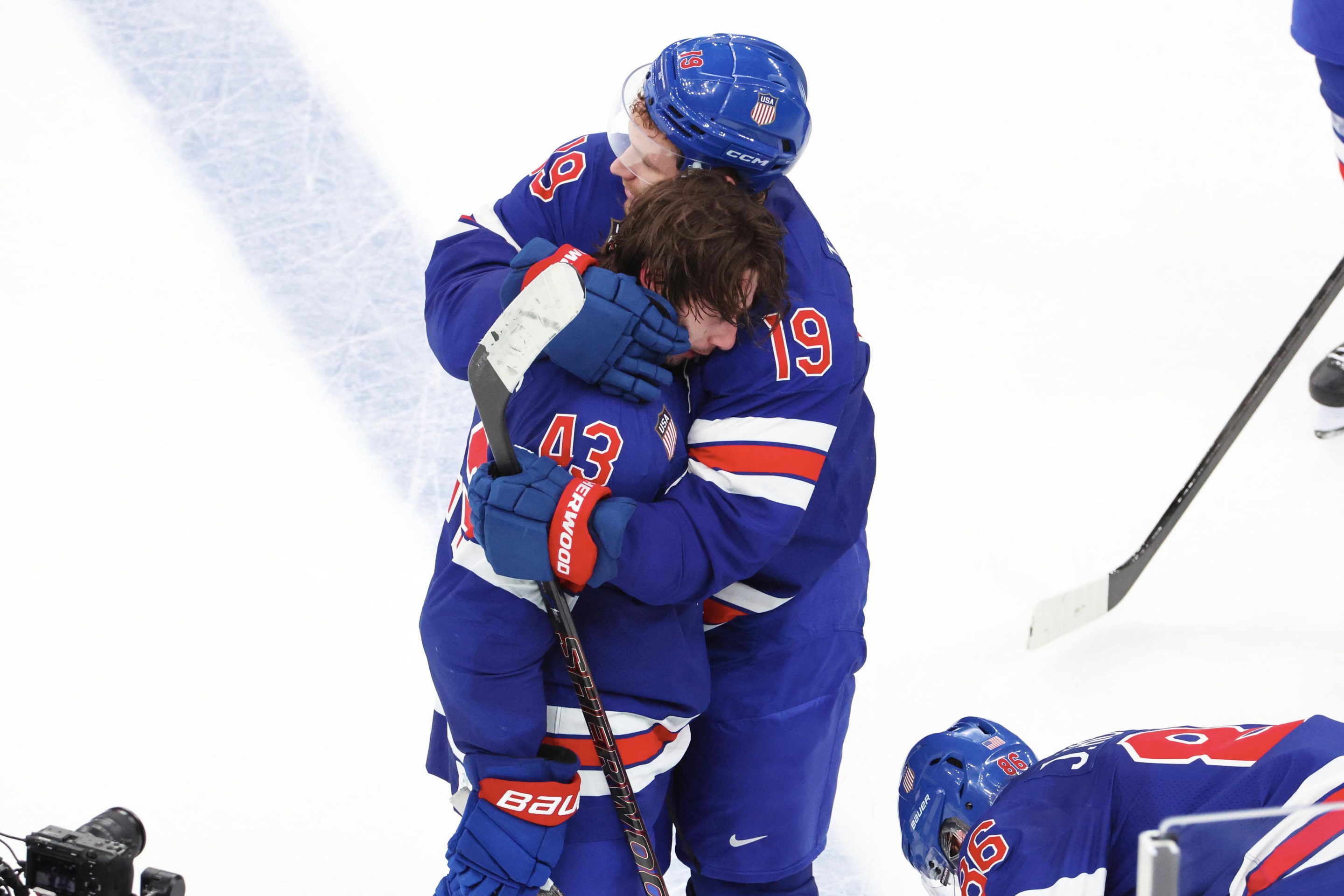Nothing and nobody is bigger in Ireland these days than Garth Brooks. The beefy Oklahoma warbler finishes a run of five sold-out shows at Dublin’s Croke Park this weekend. That’s the longest residence any musical act has ever had at the 80,000-seat stadium, which dates back to the 1890s. But Brooks’s appearances, his first in Ireland in 25 years, are also noteworthy because of the sporting and cultural history of the venue hosting him. For those same reasons, these shows almost never happened.
I can’t explain Garth’s unprecedented appeal in Ireland or elsewhere–no solo artist in history has sold more albums, not even Elvis. But I did once witness and fall victim to his superpowers. I was in Atlanta in late 1992 covering an auto industry convention downtown when Brooks was playing across the street at the Omni as part of his first headlining tour. All I knew about him was that he had three albums on the Top 20 chart at the same time, which to me was an unheard-of level of popularity. So I scalped a ticket for $5 at showtime to see what the fuss was about. Pop country wasn’t my bag and I surely went in expecting to find everything about him mockable. Then not long into his set, Garth broke into a ballad I’d later learn was called “Unanswered Prayers.” It’s a story song where a middle-aged guy goes to a high school football game and runs into his adolescent flame. And under those Friday night lights in the grandstand he has an epiphany about how lucky he is to have been dumped by the girl of his dreams.
“Some of God's greatest gifts are unanswered prayers,” Garth crooned.
Blech, am I right?
Wrong! By the end of the first verse, the couple next to me was sobbing so hard they were almost convulsing. During the second verse I noticed that everybody around me in the upper deck of the arena behind the stage was also bawling. I’d never heard the damn song before, but before it was over hell if I wasn’t tearing up, too. The rest of the night was similarly and indefensibly moist. But fascinating! That’s gotta be the best $5 I’d ever spent on a concert ticket.
The Irish like stories and songs and crying, so maybe it’s not a shocker that Garth’s popularity in Ireland was second to none. When he returned to touring after a 13-year hiatus in 2014, he decided to make Dublin the epicenter of his comeback. He was booked to play five shows at Croke Park, and sold all 400,000 tickets in less than a day. That’s an amazing sales number anywhere, especially in a country that, according to World Bank stats, had a 2014 population of only 4.5 million.
Alas, none of those 2014 tickets were ever used. All of Brooks’s scheduled Dublin shows were canceled.
Which brings us to Croke Park, and its place in Irish history and culture. See, Croke Park ain’t just another big building to the Irish. It’s more a combination of Lambeau Field and the Wailing Wall.
Croke Park is the temple of Gaelic football and hurling, those uniquely Irish pastimes that beginning in the late 19th century were used by the Gaelic Athletic Association (GAA) to win the hearts and minds of countrymen and build nationalist fervor against the occupying British forces. The GAA forbade association members from playing soccer, cricket or rugby, sports that iconic Irish rebel leader Michael Collins dubbed “garrison games” because they were brought to the island by the oppressors. A portion of the GAA code known as Rule 42, which dates back to the turn of the last century, prohibited the use of the association’s hurling and football venues for non-Gaelic events.
Croke Park’s standing as hallowed grounds was immortalized by the 1920 massacre of 14 people at a Gaelic football game at the stadium by British forces, an event that became known as “Bloody Sunday.” Tipperary footballer Michael “Mick” Hogan was among those shot dead on the pitch, and a side of the stadium is named in his honor.
Rule 42 wasn’t always held to be literal: Muhammad Ali fought fellow American Al “Blue” Lewis in 1972 at Croke Park, for example. But the sentiment that the venue should be reserved for Irish events had incredible endurance. One example: Dublin is the home of the world’s first rugby club, founded in the 1850s at Trinity College. Yet Croke Park’s landlords didn’t let anybody use the stadium for a rugby match, not even the Irish national team, until 2007. Croke Park ended its soccer prohibition the same year, when Ireland played Wales in a Euro 2008 qualifier.
But even if Rule 42 had been watered down over time, lots of Irish folks got peeved in 2014 that an urban cowboy from America would be allowed to break the provincial barriers down and so utterly make Croke Park his home. Angry Dubliners coaxed the city council to deny Brooks the permits necessary to play the five shows. The rationale was that the stadium had already used up its allotment of three non-GAA events for the year. The local lawmakers offered Brooks three nights. Brooks, clearly wanting to make some Irish history of his own, challenged the authorities by responding with “five shows or none at all.” Reports say the Dublin deciders made a final offer of four shows. Brooks didn’t bend. He canceled the whole trip and told the Irish promoter, Aiken Productions, to issue refunds for all 400,000 tickets.
The cancelation of what would have been the biggest music extravaganza in Ireland's history and a huge moneymaker for Dublin became a national issue. Brooks learned he had some friends in high places: Taoiseach Enda Kenny, the equivalent of prime minister, intervened in hopes of getting the shows restored. When he failed, Kenny told the Oireachtas, the Irish legislature, that the debacle was a stain on "the reputation of our country.”
But Brooks and Ireland survived. And times are different. More Irish love soccer and rugby by the year and face no recriminations for admitting it. (It helps that the Irish national rugby team is, amazingly, the top-ranked squad in the world.) And there’s a lot more openness about using GAA grounds for events other than hurling and football. By the spring of 2022, the pendulum had swung so far in the other direction that the GAA moved both an All-Ireland Gaelic football tournament clash between Cork and Kerry and a hurling match between Cork and Kerry away from Cork’s GAA-controlled home stadium, Páirc Uí Chaoimh, to accommodate a series of concerts by a Brit, Ed Sheeran.
(Not that Irish-centricity has disappeared from GAA venues: In September 2019, I attended the All-Ireland Gaelic football final, Ireland’s Super Bowl, at Croke Park and heard “The Foggy Dew,” a century-old rebel song about the 1916 Easter Rising, played over the PA during a break the way I’d hear “Rock and Roll Part II” at an American sporting event. Talk about moist!)
Whatever hard feelings either Brooks or the GAA had from the 2014 debacle softened up over the years and during the pandemic. As Brooks was putting together a 2022 stadium tour last year, he approached the same Irish promoter and Croke Park about giving the whole shebang another go. He got permission to book two shows. Brooks made a shrewd PR move and set the face value of tickets for this re-do residency at the same prices he’d charged for the doomed shows in 2014. Those two nights out sold out immediately. A third show was added, and sold out. With the blessing of local politicians, Brooks added shows four and five.
And they're coming off as we speak. The early returns have been gushing. "Hurt is healed at magnificent first night at Croke Park," read the headline of the Irish Examiner's review of the opener, which like all the notices I've read so far said Brooks's live show is just plain boffo. The reviews also tend to mention how much crying takes place. According to The Journal, Garth himself took five crying breaks—five!—during the first performance, which the site's critic summed up as "a night of unabashed positivity and emotion at a time of, well, grimness."
Garth's not the only one tearing up. “Unanswered Prayers” has made the setlist of all three Croke Park shows played so far. Here’s Brooks and a chorus of 80,000 singing it in Dublin on Sept. 11. Watch and listen. I gotta get a tissue.






